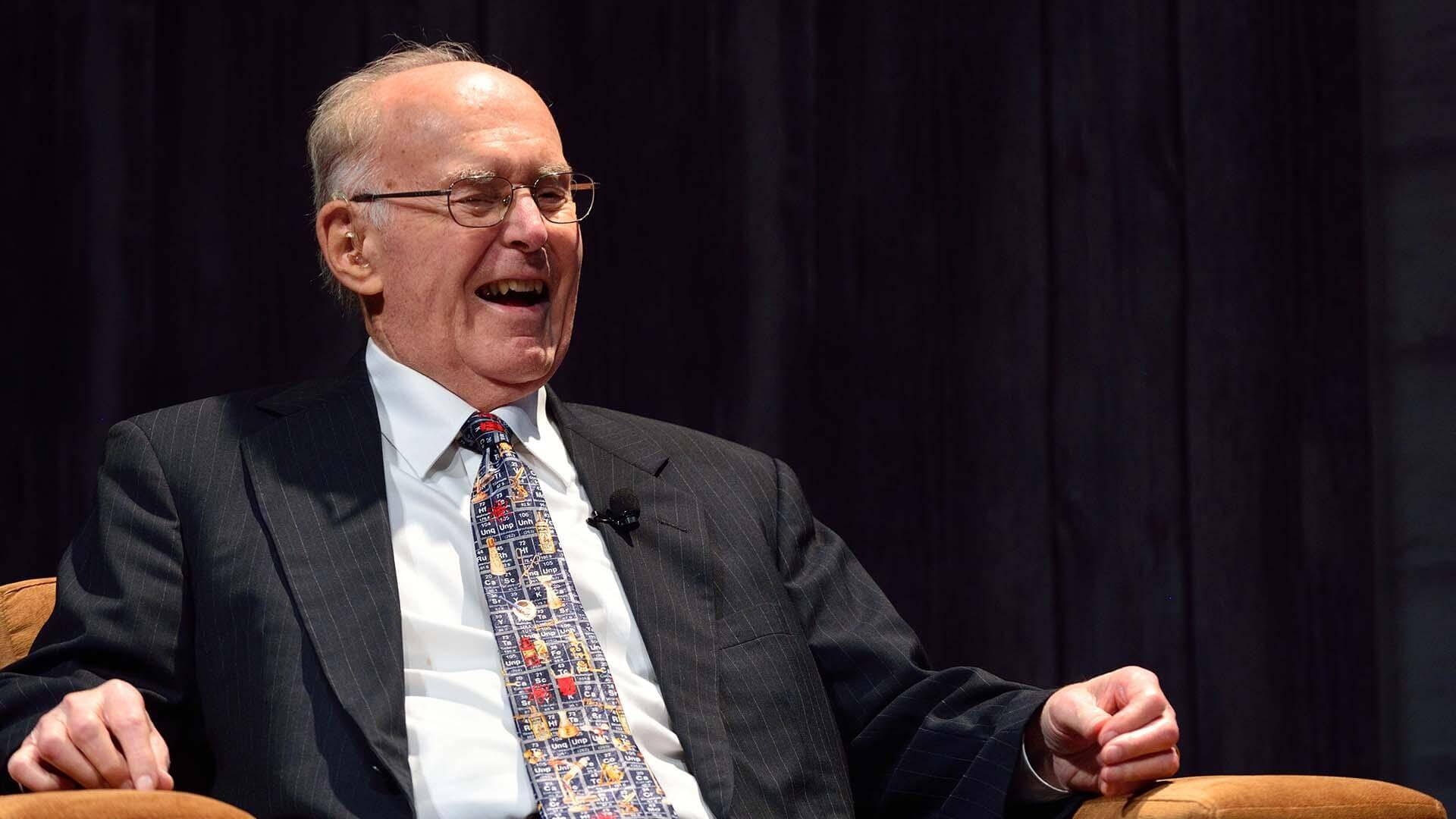Moore became especially famous thanks to the law he coined - Moore's law describing the rate of development of chip technology which today is everywhere

Intel and the Gordon and Betty Moore Foundation today announced that company founder Gordon Moore has passed away at the age of 94. The foundation reported that he died peacefully on Friday, March 24, 2023, surrounded by his family at his home in Hawaii. Moore is survived by his wife Betty whom he married in 1950, two sons - Kenneth and Steven and four grandchildren.
Gordon Earl Moore was born in San Francisco on January 3, 1929 to Walter Harold and Florence Elmira "Mira" (Williamson) Moore. Moore was educated at San Jose State University, the University of California at Berkeley, and the California Institute of Technology, where he received a doctorate in chemistry in 1954.
He began his research career at the Johns Hopkins Applied Physics Laboratory in Maryland. He returned to California in 1956 to join Shukley Semiconductor. In 1957, Moore co-founded Fairchild Semiconductor, Fairchild's photography and musical instrument division, along with Robert Noyce and six other colleagues from Shockley Semiconductor. 11 years later, in July 1968, Moore and Noyce co-founded Intel.
Moore initially served as senior vice president until 1975, when he became president. In 1979, Moore was appointed chairman of the board and CEO, positions he held until 1987, when he relinquished the position of CEO and continued as chairman. In 1997, Moore was appointed chairman emeritus, and retired in 2006.
Before founding Intel, Moore and Noyce co-founded Fairchild Semiconductor, where they played key roles in the first commercial production of diffused silicon transistors and later in the world's first commercially usable integrated circuits. The two had previously worked together under William Shockley, co-inventor of the transistor and founder of Shockley Semiconductor, which was the first semiconductor company established in what would become Silicon Valley. After striking out on their own, Moore and Noyce hired future Intel CEO Andy Grove as their third employee, and the three of them built Intel into one of the largest companies in the world. Together they became known as the "Holy Trinity of Intel", and their legacy continues to this day.
In addition to Moore's important role in establishing two of the pioneering technology companies in the world, he predicted in 1965 that the number of transistors in an integrated circuit would double every year - a prediction that was nicknamed "Moore's Law". "All I was trying to do was get the message across that by moving more and more applications onto chips we're going to make all electronics cheaper," Moore said in a 2008 interview.
After his 1965 prediction was proven correct, in 1975 Moore updated his estimate to doubling the transistors in an integrated circuit every two years for the next 10 years. Either way, the idea of chip technology growing at an exponential rate, constantly making electronics faster, smaller and cheaper, became the driving force behind the semiconductor industry and paved the way for the ubiquitous use of chips in millions of everyday products.
With Fairchild and Intel came financial success. Starting with personal gifts, many of them anonymous, then establishing the Moore Family Foundation, and finally, in 2000, establishing the Gordon and Betty Moore Foundation, Moore and his wife sought philanthropy to make the world a better place for future generations. His passion for impact and measurement were the hallmarks of his philanthropic work and aspirations.
He received the National Medal of Technology from President George H. W. Bush (Sr.) in 1990, and the Presidential Medal of Freedom, the nation's highest civilian honor, from President George W. Bush (Jr.) in 2002.
After retiring from Intel in 2006, Moore split his time between California and Hawaii, and served as chairman of the board of the Gordon and Betty Moore Foundation until transitioning to chairman emeritus in 2018. Moore also served as a board member of Conservation International and Gilead Sciences, Inc. He was a member of the National Academy of Engineering, a fellow of the Royal Society of Engineers and a fellow of the Institute of Electrical and Electronics Engineers. He served as Chairman of the Board of Trustees of the California Institute of Technology from 1995 to the early 200s.

One response
Did someone proofread?
Many sentences do not make sense or are incorrect